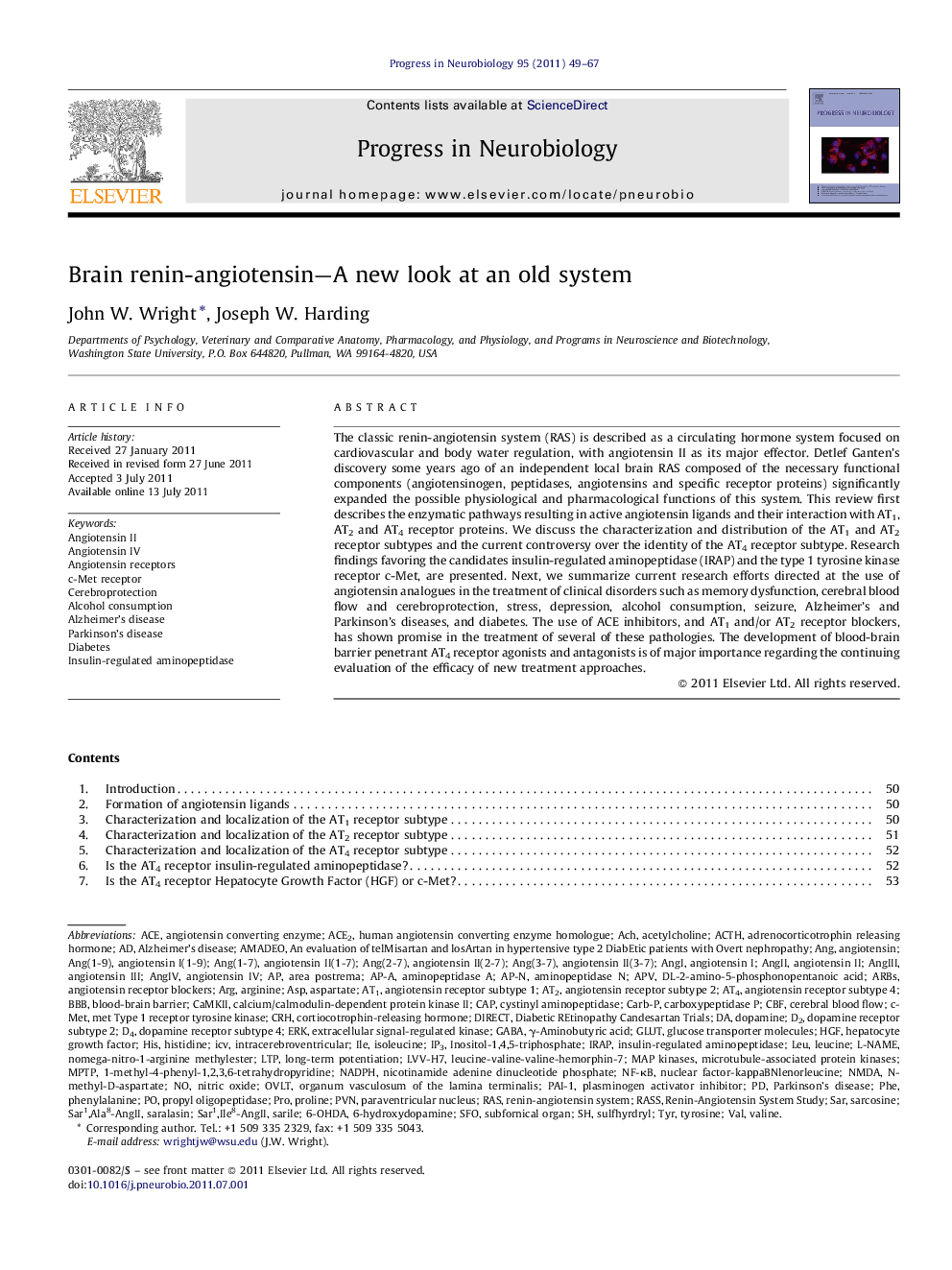| Article ID | Journal | Published Year | Pages | File Type |
|---|---|---|---|---|
| 4353647 | Progress in Neurobiology | 2011 | 19 Pages |
The classic renin-angiotensin system (RAS) is described as a circulating hormone system focused on cardiovascular and body water regulation, with angiotensin II as its major effector. Detlef Ganten's discovery some years ago of an independent local brain RAS composed of the necessary functional components (angiotensinogen, peptidases, angiotensins and specific receptor proteins) significantly expanded the possible physiological and pharmacological functions of this system. This review first describes the enzymatic pathways resulting in active angiotensin ligands and their interaction with AT1, AT2 and AT4 receptor proteins. We discuss the characterization and distribution of the AT1 and AT2 receptor subtypes and the current controversy over the identity of the AT4 receptor subtype. Research findings favoring the candidates insulin-regulated aminopeptidase (IRAP) and the type 1 tyrosine kinase receptor c-Met, are presented. Next, we summarize current research efforts directed at the use of angiotensin analogues in the treatment of clinical disorders such as memory dysfunction, cerebral blood flow and cerebroprotection, stress, depression, alcohol consumption, seizure, Alzheimer's and Parkinson's diseases, and diabetes. The use of ACE inhibitors, and AT1 and/or AT2 receptor blockers, has shown promise in the treatment of several of these pathologies. The development of blood-brain barrier penetrant AT4 receptor agonists and antagonists is of major importance regarding the continuing evaluation of the efficacy of new treatment approaches.
► Functions associated with the renin-angiotensin system have expanded from its classic role in cardiovascular and body water regulation, to now include roles in stress, depression, seizure, cerebroprotection, memory, alcohol consumption, Alzheimer's and Parkinson's diseases, and diabetes. ► FDA approved drugs originally designed to interact with the AT1 angiotensin receptor subtype in order to treat hypertension are now being tested in clinical trials with patients suffering from Alzheimer's disease, Parkinson's disease, and diabetes. ► Considerable basic research attention has focused on the role of the most recently discovered angiotensin receptor subtype, AT4, in memory facilitation, cerebral blood flow, cerebroprotection and seizure. Small molecule analogues are being designed to penetrate the blood-brain barrier and act as agonists and antagonists at this receptor subtype. Once these small molecules are available they can be tested with appropriate patient populations. ► It is a very exciting time for the many researchers and clinicians who are focused on the renin-angiotensin system given the breadth of findings implicating this system in the mediation of a variety of new functions and the potential application of newly developed drugs to related dysfunctions and disease states.
